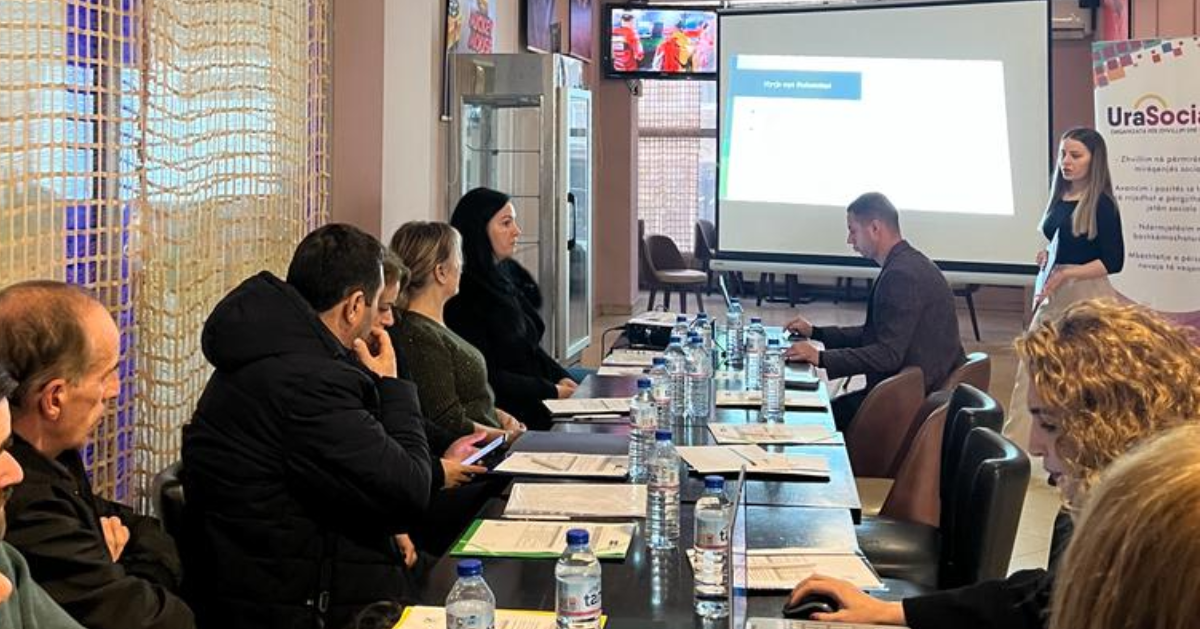“We Have Problems with Funds,” “We Don’t Have an Office to Operate,” “We Don’t Have Enough Support” – These are just some of the answers given by non-governmental organizations when asked why they are no longer active.
They are facing the same problems as other organizations that are still engaged in activities based on the opportunities they have. These organizations express that they find themselves on the brink of closure, although that is not their intention.
Some of these NGOs, particularly those focused on women’s rights and the promotion of gender equality, received support from the state in 2022.
Some of these NGOs, particularly those focused on women’s rights and the promotion of gender equality, received support from the state in 2022. However, for the current year, these NGOs are still awaiting the commencement of subsidies, despite funds being allocated for them even in recent months. According to a research report by Kallxo.com, the process of subsidizing NGOs, as stated by the Ministry of Justice, is expected to begin in May.
“Securing Funds – The Main Challenge for NGOs”
There are nearly 200 non-governmental organizations in Kosovo that advocate for women’s and girls’ rights. However, these organizations face a significant challenge due to a lack of financial resources to effectively carry out their activities.
The lack of financial support poses a significant challenge for these organizations to fulfill their mission.
Shemsie Seferi, the head of the “Association for Women’s Emancipation – Alma” in Pejë, highlights that the lack of funds is putting the organization at risk of closure. She explains that the organization is currently unable to operate at full capacity due to the challenges they are facing. According to Seferi, “The NGO is not fully active, but at the moment we have a problem with the office. We don’t have funds to pay the rent.”
“Funding issues can indeed lead to the closure of the organization, without a doubt,” Seferi emphasizes. She further explains that the only solution to overcome the challenges faced by her organization is to secure sufficient funds. Seferi highlights that this is not only applicable to the organization she leads but to every other non-governmental organization that strives to promote and strengthen gender equality.
“For the NGO that continues to be active, stable financial support is the key requirement,” Seferi remarked. She also identified another challenge they are facing, stating that projects are often won by larger NGOs, which presents a struggle for smaller organizations like theirs.
According to Seferi, this situation leaves local and smaller NGOs in the shadows. She points out that their organization has not won any projects recently and has instead been engaged in voluntary activities, collaborating with entities like the Red Cross. Seferi expresses frustration, stating that larger NGOs tend to dominate and secure the majority of the funds, making it difficult for smaller organizations to thrive. Despite the lack of funds, she emphasizes that they continue to work within the limitations of the opportunities available to them.
The non-governmental organization “4 Change” has been inactive for several years now. The organization, which focused on strengthening equal rights, was forced to close due to various issues, including problems with financing.
Alba Hajdini, the former leader of this NGO based in Pristina, explains that insufficient funds played a significant role in bringing the organization to the point of closure.
“We didn’t have sufficient finances, which resulted in limited time and resources to dedicate to the NGO. When you lack time, the opportunities and conditions decline,” Hajdini states.
She also highlights that lack of funding was not the only problem; the time commitment required for the organization contributed to its inactivity.
Hajdini expresses hope for the future reopening of the organization and the continuation of its activities. She emphasizes that during the time they were active, they did not seek support from institutions, although they may have received some assistance. “The future is uncertain, but there is a possibility that the organization may reopen in the future. It’s not that we asked for support from institutions, but perhaps we could have received some,” says Hajdini.
Even the non-governmental organization “Bliri,” led by Mahije Smajli in Drenas and established in 2010, is currently experiencing funding difficulties. The organization’s mission is to contribute to the empowerment of women and girls from all communities by providing health education and promoting the highest possible quality of life. “Bliri” aims to enhance women’s roles in family and societal disease prevention, raise awareness about healthcare, and implement concrete programs to improve women’s health with a qualitative approach.
Aside from the challenge of insufficient funds, the organization also faces the issue of lacking office space. “The NGO is still active. One of our main current challenges is the office problem. We are facing difficult conditions regarding our office,” explained the organization’s director to KALLXO.com.
Smajli highlights that their organization’s activities primarily take place in rural areas and villages. This geographical context adds to their challenges, including funding constraints, office space limitations, and transportation issues. Smajli explains that they have approached local institutions for assistance with transportation, but a satisfactory solution has yet to be found. She believes that with sufficient funding, they could address these issues effectively, and they are eagerly waiting to receive a project that could provide a solution.
Smajli observes that other organizations with similar goals as theirs are also facing the same problems. She notes that the closure of these organizations is becoming increasingly common, primarily due to a lack of respect, inadequate support, insufficient resources, and a general disregard for their work. Smajli emphasizes the importance of financing, stating that there are capable and dedicated women involved, but financial support is crucial for their operations.
“We are trying to make it as best as we can”
Another organization that has been closed for three years is “Cradle of Smiles.” This NGO ceased its operations due to a lack of funds. “Cradle of Smiles” collaborated with the organization “Medica Kosova” and focused on reducing trauma symptoms caused by the war, particularly among victims of violence, and supporting their integration into social and public life.
Veprore Shehu from “Medica Kosova” reveals that their organization is also facing financial difficulties. In February of this year, they completed three major projects simultaneously, expressing disappointment that their financial needs were overlooked. Shehu states, “We are waiting for a response regarding the applications we submitted for two projects.” She also mentions that they had a project with central institutions, where they received funding for five consecutive years to support survivors of sexual violence during the war. However, that project has also come to an end, and they are waiting for an extension deadline and a response.
Shehu explains that they are awaiting relicensing in order to continue applying for other projects. However, the licensing process itself poses a significant challenge. Shehu emphasizes the importance of timely licensing as it is a prerequisite for applying for projects.
Moreover, Shehu points out that foreign donations are now shifting their focus to other countries, making it difficult for them to receive donations from abroad. She believes that the state should play a role in addressing this issue and engaging in fundraising efforts.
Support of NGOs
During 2022, an allocation of 1 million euros was made to non-governmental organizations focused on women’s rights. In the current year, from May 2023 to February, the funds designated for financial support to these organizations have increased by 500 thousand euros. The Ministry of Justice stated that for the first four months of this year, the government allocated an additional 500 thousand euros. According to the Ministry of Health’s responses to KALLXO.com, the Government of Kosovo supported NGOs with 500 thousand euros for the period of January-April 2023, and the Ministry of Justice is in the process of providing financial support amounting to 1 million and 500 thousand euros for the period of May-December 2023 to February 2024.
The Ministry of Justice recently included the Department for Social Services Policy within its composition, which was previously functioning under the Ministry of Finance until December 2022. The Ministry opened a call for subsidizing NGOs that provide social and family services to citizens in social need, aligning with its responsibilities.
In the past year, the Ministry of Finance provided financial support of 1 million euros to organizations. Of this amount, 400,000 euros were allocated to shelters in Kosovo, while the remaining 600,000 euros were distributed among NGOs providing social and family services. Data shared by the ministry indicates that 44 legal entities were supported in 2022, including ten shelters and 34 other non-governmental organizations.
In 2012, the Kosovo Women’s Network established the Kosovo Women’s Fund in response to changing aid priorities and reduced budgets that affected many donors in Kosovo, leading to the closure or reduction of grant programs for NGOs. This fund provides small grants to women’s organizations that lack access to other funding sources, with a particular focus on supporting women’s rights initiatives, especially in rural and marginalized communities. The fund also offers capacity development opportunities for beneficiary organizations and those applying for grants. Since its establishment, the Kosovo Women’s Network has administered 197 grants to 107 Civil Society Organizations, with a total value of 1,011,387 euros, utilizing transparent, efficient, and proven systems and procedures for sub-granting.







